At Futures, we take health and safety very seriously. It's vital that everyone is aware of how to keep themselves, their home and their families safe from common dangers like gas leaks and fire, as well as less well known but still very serious risks like Legionella, asbestos and misuse of electricity.
This page contains useful information as well as hints and tips about how to stay safe in your home. If you don't find the information you're looking for, scroll down for more help.
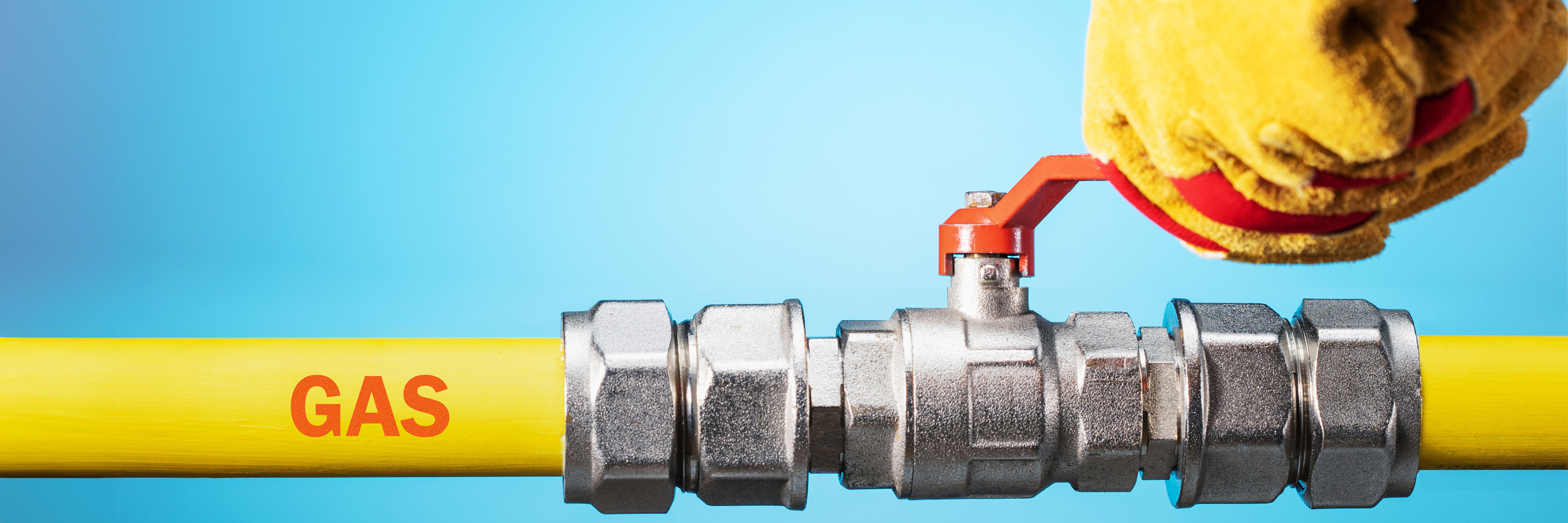
Gas leaks can be serious and dangerous. Making sure that gas appliances are safely used and maintained is one of our top priorities. Every year our expert gas engineers carry out a gas safety check for you on all gas appliances in your home. This is required by law.
These vital checks ensure that you are safe from faulty gas appliances, fittings and blocked flues which can put you at risk of gas leaks, fires, explosions and carbon monoxide poisoning.
We are not responsible for safety-checking any gas appliances in your home that you own (such as a gas cooker). But we will visually check appliances and attached flues for you and if we think they put you or your home at risk we legally have to disconnect them from the gas supply.
You can help us to carry out these checks by allowing us first-time access to your property every 12 months. If you refuse to let us in to carry out these important checks, we do have the legal right and responsibility to enter your home without your permission, but this will only ever be a last resort.

What to do in an emergency
If you think you smell gas, ring National Grid on 0800 111 999 immediately (or call minicom/textphone on 0800 371787 if you’re hearing impaired).
You can also get crucial advice from National Grid’s emergencies web page.
Crucial gas safety information
- Everyone must, by law, use only Gas Safe registered contractors to fit and maintain gas installations.
- All appliances must be checked at least once a year. If any gas appliances in your home that we own have not been checked during the last 12 months, you should contact us.
- Gas safety regulations say that you must not use appliances which are considered dangerous or allow anyone else to use them.
- If you have a gas appliance, make sure that it is fitted by a Gas Safe registered installer and arrange for it to be serviced at least once a year. If your home is fitted with gas central heating, we will arrange for this to be serviced.
- To work efficiently and safely, gas appliances need fresh air. Ventilators should be kept free from blockages to prevent dangerous fumes from building up.
- If you are sleeping in rooms with gas fires or fires and back boilers, please let us know as soon as possible.
- Never heat your kitchen with your oven.
- As a responsible landlord, we are legally required to check that any gas appliances in your home are safe every year. We also encourage all our customers to carry out their own monthly checks of smoke and carbon monoxide alarms.
- It is a condition of your tenancy that you allow our approved gas contractors into your home to carry out the annual gas safety check. We can and will enter your home without your permission to do this work, but only as a last resort.
Carbon monoxide alarms
Gas leaks are serious and can be dangerous for you and those who live around you.
CO (carbon monoxide) is an invisible, odourless gas that can come from badly serviced gas appliances. It can make you feel very ill and can even be fatal.
If you smell gas at any time of if your carbon monoxide alarm goes off, you must call Cadent on 0800 111 999 as soon as possible.
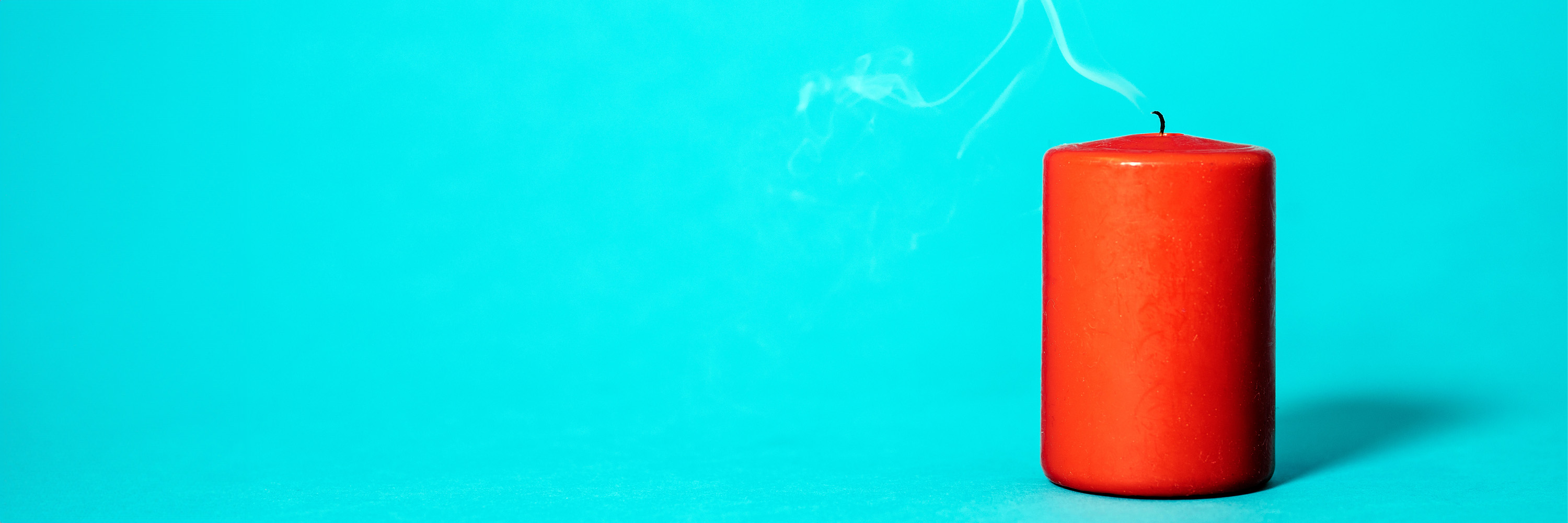
Sadly, every year hundreds of people die because of fires at their home. Many of these deaths could have been prevented.
Most homes have a range of fire risks. Well-known risks include burning candles and cooking left unattended, covered electrical heaters, overloaded plugs, and cigarettes.
Keep you and your family, friends and neighbours safe
- Install smoke alarms on every level of your home and make sure that you can hear them throughout your home.
- Test your smoke alarms monthly – they could save your life, but only if they are working.
- Offer to test the smoke alarms of an older family member, neighbour or friend who needs help.
- Plan and practise how you’d escape in a fire and have a backup plan in case your main exit is blocked.
- Most accidental fires start in the kitchen, so take care and never leave cooking unattended.
- Don’t overload plug sockets and adapters – watch out for loose wiring, scorch marks, and hot plugs and sockets.
- Keep heaters clear from curtains and furniture and never use them to dry clothes.
- Stub cigarettes out properly and dispose of them carefully – put it out, right out.
By following these quick and simple steps, the number of fatalities and injuries caused by accidental fires can be vastly reduced.
For more information and guidance about fire safety in and around the home, please visit https://www.gov.uk/government/collections/fire-safety-guidance#fire-safety-guidance-for-inside-and-outside-the-home
Fire risk assessments
We are legally required to carry out fire risk assessments on all of our properties with communal areas to assess and reduce fire risks.
All our fire risk assessments go through a rigorous checking process. The initial inspection is carried out by a specialist contractor whose report is then quality-checked by another fire safety specialist. After that the report is reviewed and actioned by our Health, Safety and Environment Manager and Asset Compliance team.
Anything that is raised on the fire risk assessment is given a high, medium or low priority. The priority rating means that we can make a plan and ensure that we have everything we need to to complete the action, so our customers know that the homes they live in are safe, secure and provide protection against fire.
If you live in a building with a communal area you are entitled to see a copy of the fire risk assessment. If you'd like a copy, have any questions about this process or about a specific fire risk assessment, please fill out our customer enquiries form with more details. We will respond within 14 days of hearing from you.
If you live in a flat
If you live in a block of flats we will write to you every year to give you fire safety information. You will also find notices in communal areas of your building. The key points to remember are:
- If there is a fire in your own flat, get everybody out, stay out and call 999.
- Check that your smoke alarms are working regularly.
- Make an escape plan for you and those living with you.
- Keep communal corridors and escape routes clear at all times.
If you have any medical needs that would prevent you from being able to get out safely in the case of a fire, please contact our customer services team on 0300 456 2531 to let us know. Alternatively, click here to fill in our customer enquiries form.
Some of our buildings that have shared spaces or communal areas will operate on a 'stay put' policy. This means that if there is a fire elsewhere in the building, you should stay in your home and await further instructions from the emergency services. This is because your flat is designed to keep fire out, and you would be at greater risk of harm by leaving your home. If you have any concerns about the stay put policy in your home, please contact us by calling 0300 456 2531.
Fire safety on balconies
We want you to enjoy your balcony, but we want you to do this safely. We expect all our customers to take the following simple steps:
- Keep your balcony free of any flammable items and materials. Flammable items include large storage boxes, cushions, small balcony sheds, tins of paint, and electrical appliances such as dryers and fridges. You may be surprised to hear that 1kg of plastic has the same energy when set alight as 1kg of fuel, which is why we ask you to limit the amount of storage you have there.
- Never store gas cylinders on your balcony. They may explode if they are left in the sun, even in winter.
- Never use barbecues, chimneys, fire pits or patio heaters on your balcony. Fires caused by these items can spread very quickly to the balconies above and below. Fire could also spread quickly into your home if doors or windows are left open.
- We would advise that you do not smoke on your balcony or allow guests to do so. If you must, then it is important that you stub cigarettes out in a closed metal ashtray. Never drop cigarettes on or over the side of the balcony. Even without the fire risk - it's not very neighbourly to make others smell your smoke in their homes.
- Never use or store fireworks on your balcony (or anywhere in your home). If you have fireworks that you no longer want, some fire services will collect them free of charge and arrange to dispose of them safely.
We've created a poster to remind you about balcony safety, which you can view and download by clicking here.

Every year, around 70 people die and 350,000 are seriously injured by electrical accidents in their home. We know it can be tempting to save money and time by ‘having a go’ at electrical work yourself in your home, but if you’re not a qualified electrician, you might injure yourself or damage your home. A good rule of thumb is – if you have to Google how to do it, it’s probably not something you should be doing yourself!
It’s also worth remembering that DIY can end up costing way more than you’d save by hiring a professional – a whopping 98% of electricians said they’d had to repair an issue caused by people trying to do their own electrical work and getting it wrong.
We have a responsibility as your landlord to do our bit to keep you safe – we test the electrics in every property before it’s let, and do another test every five years, in line with national guidelines. If your property is due a test, we’ll send you a letter and a leaflet and make an appointment to visit your home.
We know you might want to make changes to your home by doing things like moving light switches or adding extra sockets. This can make a real difference to your enjoyment of your home and we want to support you to do this safely – all you need to do is fill in our home alterations form, and then wait for us to approve it. We’ll ask you to make sure the work is done by a qualified electrician, and we will ask to see the certificate of works and come and take a look once it’s done.
There are other things you can do to keep yourself and your home safe:
Register your electrical goods
You can register electrical goods with the manufacturer so you’re notified if they’re ever recalled for safety reasons – it’s quick and easy to do, and it means you’re protected from using a faulty or dangerous product. Whether it’s a phone charger or a tumble dryer, it could still pose a risk to your home, so it’s worth taking the time to do. A good starting point is the Electrical Safety First website, which signposts you to the right place to register your goods.
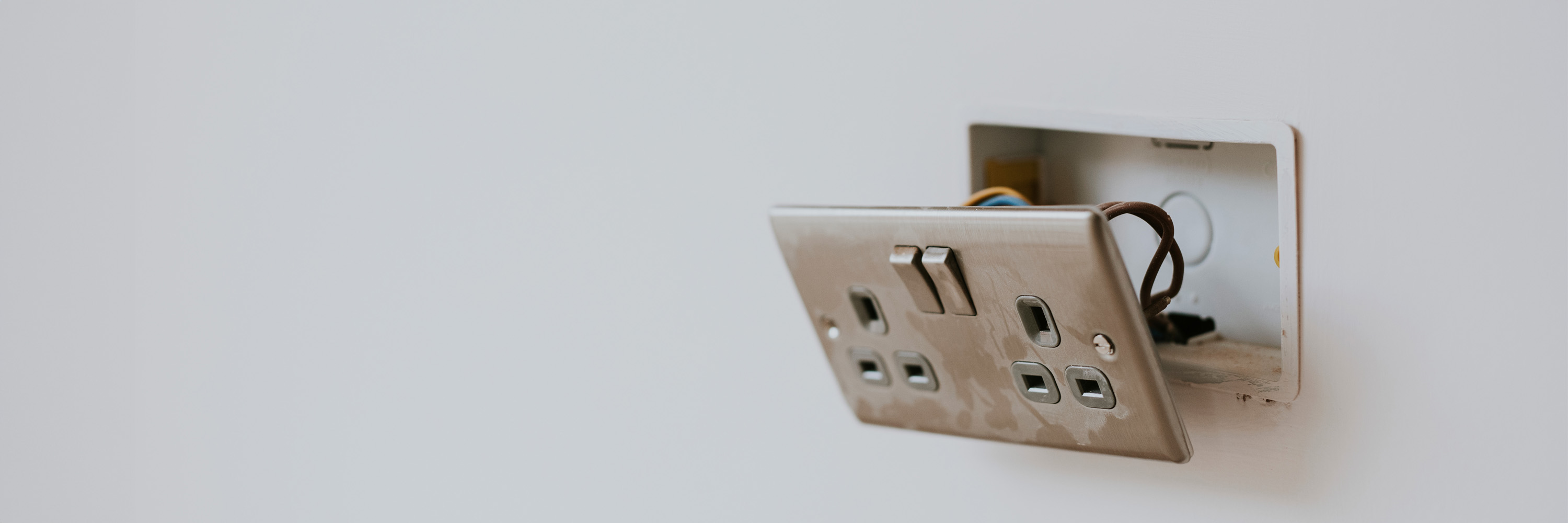
Don’t overload sockets or extension leads
Make sure your sockets aren’t overloaded with high current items – you can find a socket calculator here. Overloaded sockets are more likely to become damaged and overheat, which means the socket itself might stop working, catch fire, or damage the products plugged into it.
Never ‘daisy chain’ extension leads by plugging one into another. They’re available with a variety of lead lengths so you don’t need to do this.
Never tamper with electricity sources
We’ve been made aware of some incidents in our areas where Western Power distribution equipment has been tampered with, likely in an attempt to get free electricity or to trick a meter into giving a false lower reading. Not only is this illegal, it’s also incredibly dangerous to you and the other people whose electricity comes from these sources. This sort of tampering can lead to electrocution, power outages and fires.
Of course, there are other consequences as well as the severe health and safety risk that electricity theft poses. The household responsible will be expected to pay back the costs of the stolen power. If someone in a Futures home was discovered to be stealing electricity, they may also be in breach of their tenancy agreement and could face legal action.

What is Legionella?
Legionella is a bacteria naturally found in water and wet environments such as lakes and rivers. It can get into cold water supplies through water treatment centres, and from there into your home. All man-made hot and cold water systems are likely to provide an environment where Legionella can grow. It can grow in environments where:
- stored hot or cold water temperatures are between 20-45°C
- water droplets (aerosols) are being produced and dispersed
- there is some 'food' for the organism to grow on such as rust, sludge, scale or biofilm.
What is legionnaires disease?
Legionnaires is a serious lung disease caused by inhaling small droplets of water containing Legionella bacteria. This disease is potentially fatal and can affect anybody. However, some groups of people are more at risk:
- people over 45
- people who smoke
- people who drink a lot of alcohol
- people with chronic respiratory or kidney disease
- people with an impaired immune system.
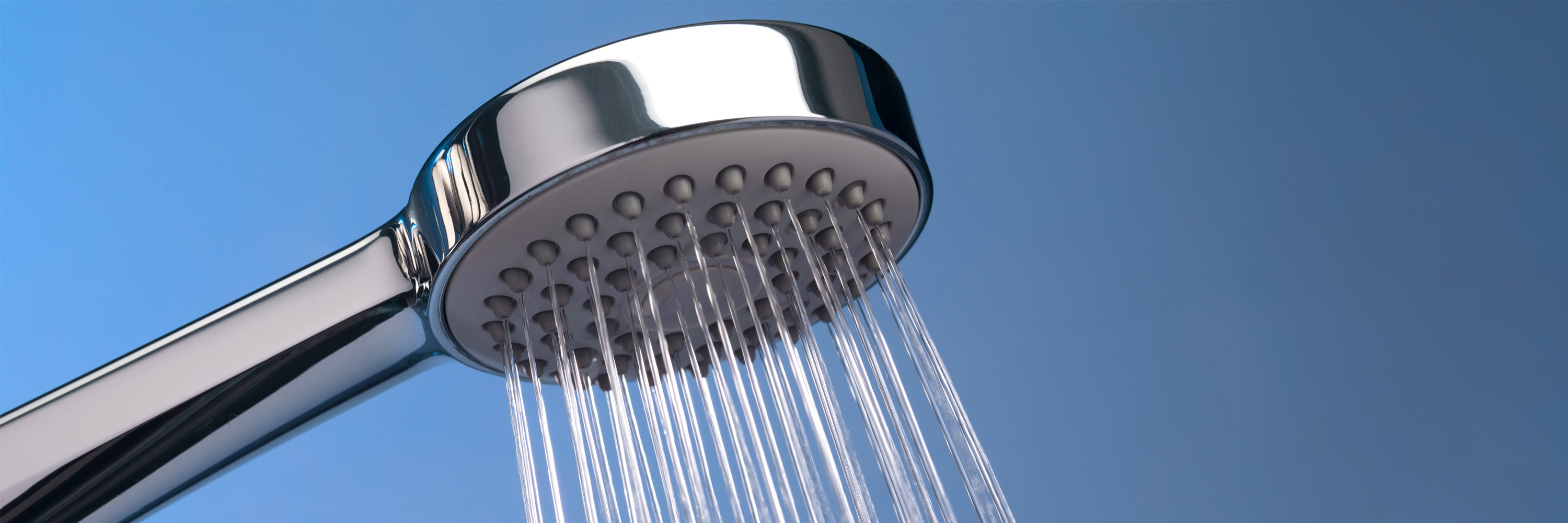
Reducing the risk
Health and safety legislation requires landlords to check water systems found in the home for Legionella bacteria, which can cause legionnaires disease.
We are committed to protecting the welfare of our customers and employees, and the following guidance will help you prevent Legionella appearing in your home.
- When you first move into your home, run the bath and hand basin taps continuously for at least five minutes. This will flush through any bacteria. You can hang a tea towel or cloth over the taps to stop any water droplets splashing back.
- If you have a shower in your home, run water from both hot and cold supplies, or turn on if an electric shower, and run for two minutes. To make sure no spray escapes from the showerhead, secure a plastic bag over the shower head with an elastic band or tape, cut off a bottom corner and let the water run out through the bag.
- If your shower has not been used for two weeks or more, disinfect the showerhead. The showerhead should be removed and the shower run for two minutes. The showerhead should be disinfected before being re-fitted by immersing for at least an hour in any solution designed for cleaning baby feeding bottles (eg Milton). Showerheads should be regularly disinfected, about four times a year.
- Raise the temperature of any stored water to 60°C or higher. Temperatures above 60°C will kill Legionella bacteria so make sure that the temperature of the hot water in your boiler or cylinder is set at a minimum of 60°C. Beware of burns and scalding and take extra care if you have children or vulnerable people living in your home.
- Any outlets you don’t use very often, such as outside taps, should be run for two minutes once a week to flush them through.
- If your property has been empty for a while (eg after a holiday), flush the whole water system for two minutes or more. First, flush your toilet (with the seat down), then let the kitchen taps and the hand basin taps run for two minutes or more, to let both hot and cold water pass through. Next, flush the shower through as described above. Finally, let any other taps run for two minutes.
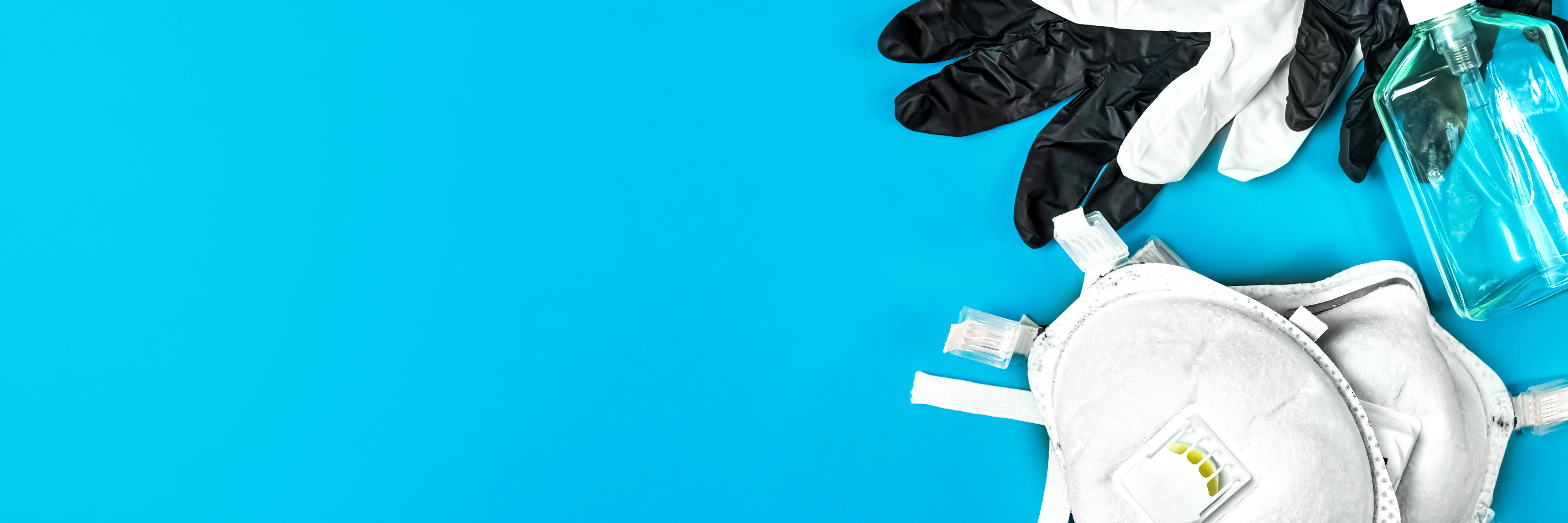
Asbestos has not been used in the UK as a building material since the early 1980s. It is not dangerous if it is in good condition but can cause serious illness if it is broken up and inhaled.
Most asbestos has either been removed from our properties or is contained safely in:
- gutters and rain water downpipes
- soffit boards, boarding under canopies
- textured paints and Artex
- flat corrugated roof or wall sheets, especially garages
- cold water tanks
- roof slates, felts and linings
- bath panels
- roof and wall cladding
- some storage heaters
- internal partitions.
We have carried out a thorough asbestos survey and keep a register of properties which contain asbestos.
If any asbestos materials, or materials that you think may contain asbestos, become damaged or you wish to carry out DIY work that could disturb asbestos, please contact our Asset Management team immediately on 0300 456 2531.

During the colder months, we know that some problems become more of an issue. Check out this page for helpful hints and advice on how to solve some of the most common problems we see during the winter.
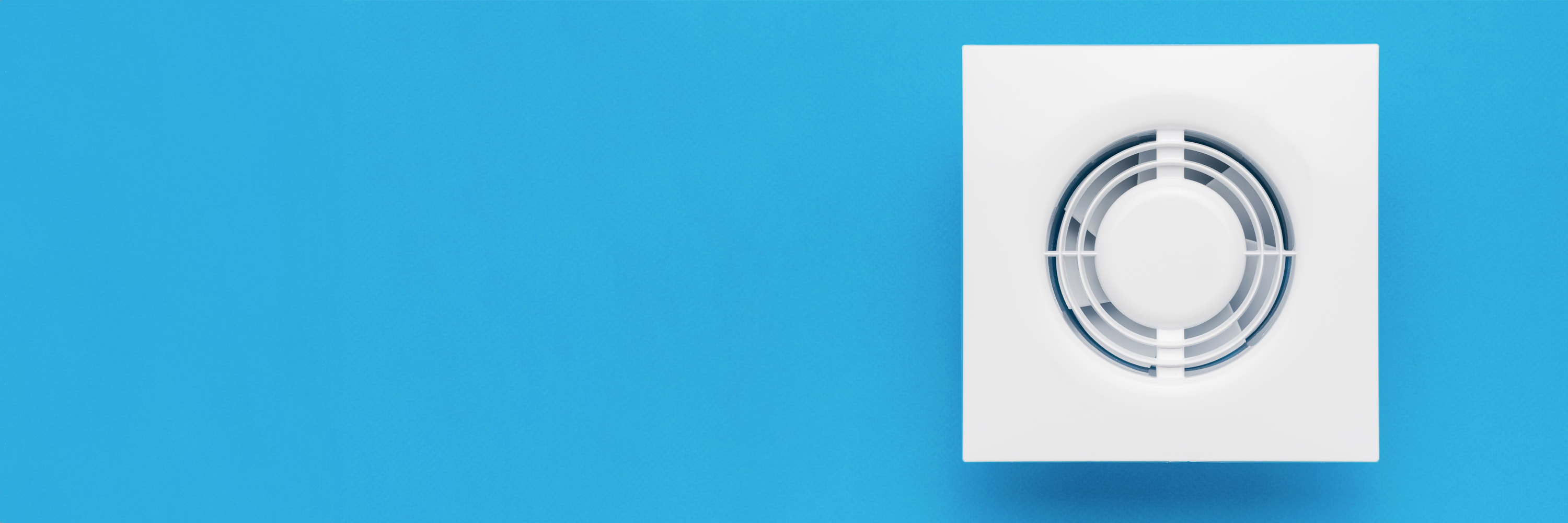
Condensation, damp and mould in the home can be bad for your health if left unmanaged.
Condensation is a risk in pretty much every home in the British climate because the weather tends to be cool and damp. Good ventilation and habits such as covering cooking pots and turning on bathroom fans can help to manage it.
If damp is the result of faults in your home, it's our responsibility as a landlord to take care of it.
Find out more about how together we can help to avoid damp and mould in your Futures home here.
We also have an advice leaflet about managing condensation, damp and mould. You can download our mould and damp leaflet here.
Want to tell us about a health and safety concern in your home?
Regulatory information
Our designated health and safety lead is Ian Skipp, Group Finance & Resources Director.
Click here to send our designated health and safety lead a message




